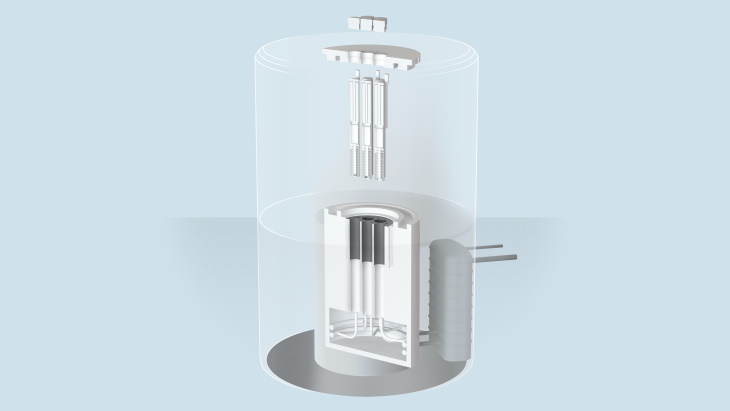Thorizon said the investors "are a strong team of private and public sector parties". The private investors are venture capital fund Positron Ventures (lead investor), impact investor Invest-NL, one private investor, and the company Huisman which not only invests but will also become an industrial supplier. The public sector investors are the two provincial funds PDENH (lead investor) and Impuls Zeeland.
The company said it has been working on a thorium molten salt reactor "for several years". Its design uses a mixture of existing long-lived waste and the abundant metal thorium, whereby "a large amount of the long-lived waste can be turned into short-lived waste and CO2-free energy".
The EUR12.5 million investment, it said, will fund essential tests and research to complete the design of a first prototype. Thorizon aims to construct a pilot reactor system before 2035.
For the development of this technology, Thorizon will collaborate closely with several parties, such as France's Orano and NRG, the Dutch producer of medical isotopes and operator of nuclear research infrastructure. Together with EPZ, operator of the Borssele nuclear power plant, Thorizon will investigate the possibility of building the first reactor on the plant site. A broader consortium of research institutions including TU Delft and DIFFER, component suppliers and industrial service providers are supporting this development.
"What started as a good idea several years ago has developed into a very promising reactor design, we are very happy with the confidence of our investors and partners," said Thorizon co-founder Lucas Pool.
MSRs use molten fluoride salts as primary coolant, at low pressure. They may operate with epithermal or fast neutron spectrums, and with a variety of fuels. Much of the interest today in reviving the MSR concept relates to using thorium (to breed fissile uranium-233), where an initial source of fissile material such as plutonium-239 needs to be provided. There are a number of different MSR design concepts, and a number of interesting challenges in the commercialisation of many, especially with thorium.
The salts concerned as primary coolant, mostly lithium-beryllium fluoride and lithium fluoride, remain liquid without pressurisation from about 500°C up to about 1400°C, in marked contrast to a pressurised water reactor which operates at about 315°C under 150 atmospheres pressure.
The main MSR concept is to have the fuel dissolved in the coolant as fuel salt, and ultimately to reprocess that online. Thorium, uranium, and plutonium all form suitable fluoride salts that readily dissolve in the LiF-BeF2 (FLiBe) mixture, and thorium and uranium can be easily separated from one another in fluoride form. Batch reprocessing is likely in the short term, and fuel life is quoted at 4-7 years, with high burn-up.







_55401.png)
_23009.jpg)






